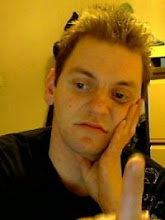 with a stupid wig, and daft looking fake dog puppet.
with a stupid wig, and daft looking fake dog puppet.
Cartmel goes on the record to say:
said they brought politics into the show "deliberately" but "very quietly".
He said: "We were a group of politically motivated people and it seemed the
right thing to do.
"Our feeling was that Margaret Thatcher was far more
terrifying than any monster the Doctor had encountered," he told the Sunday
Times.
Cartmel said it was almost a job requirement to detest Thatcher.
When asked by John Nathan-Turner, the producer, what he hoped to achieve in
being the shows script editor, he recalled: "My exact words were: I'd like to
overthrow the government.
"I was a young firebrand and I wanted to answer
honestly. I was very angry about the social injustice in Britain under Thatcher
and I'm delighted that came into the show."
Thatchers government and swathes of TV writers, in the BBC and elsewhere;- where hardly buxom buddies. Mrs T. always viewed most public institutions (and definitely the BBC itself.) as sinister and hostile entities, stacked to the brim with bolshy lefties, and the Beeb was considered to be the "enemy" by many of her cabinet. Norman Tebbit said it was run by a "Marxist Mafia.", and this would have been a common sentiment in Downing street at that time. There is probably some truth to the opinion in some right wing circles, that the media, arts and TV writers have large numbers of liberal / left leaning people in the ranks. Creative, over imaginative and slightly abstracted people tend to be more predisposed to these kinds of careers, and these tend to show up more in liberal minded people, rather than your (generally) more straight laced, practically minded, fond of the detail and plain talk, conservatives.
It wouldn't immediately be obvious, from the synopsis, that this episode is a direct attack on Thatcher. I mean the tyrannical battle axe figure is a trope that goes way before Mrs T, thought "I know, stuff making longer freezing ice-cream. I'll have a pop at being a politician!" No-one (and importantly no one involved on the commissioning side at the BBC) apparently noticed at the time, (although the paltry 3 million viewers the show was getting at the time it was canned, probably helped.) a fact that seems to have riled Andrew Cartmell.
'Critics, media pundits and politicians didn't pick up on what we were
doing.Nobody really noticed or cared.'
This as I'll explain in a later posting, is common when we see "non genre fans" relationship to sci-fi, and deserves a separate post, rather than being put in this one. Now I don't particularly like Thatcher, or would ever have voted for her. But, whilst I understand the sentiments of those involved, and I can never condone curtailments of artistic freedom, you have to be very careful when doing stuff like this, for two reasons, one of them especially relevant to a licence funded public broadcaster like the BBC. Firstly, overt analogies; especially when done in response to a grievance on behalf of a writer, are often textbook bad writing. They can be preachy, unsubtly contrived propaganda, lacking in imagination and originality, a crude platform to articulate the writers point of view. (you'll know something written like this, it'll have scriptwriters using character to speak for their behalf, rather than the character themselves.) The other is the fact that the BBC has obligations to partiality in it's programming. Thatchers fans did/ and still do, pay the licence fee as well. Overt criticising of governments and political parties will result in giving the BBC's rivals a huge stick to beat it with, and Labour and the Conservatives are too often, very willing to use that stick. If you want to do politically loaded allegorical tales on sensitive issues (and you should.) use a bit of subtlety and out the box thinking, and you can lob telly grenades at your viewers, right under the noses of the top brass. If you play your cards right with your subtle analogies, in a sci fi show, you can get away with almost everything.

No comments:
Post a Comment